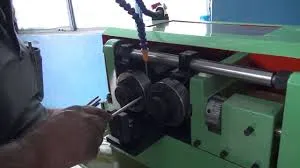
-
 Afrikaans
Afrikaans -
 Albanian
Albanian -
 Amharic
Amharic -
 Arabic
Arabic -
 Armenian
Armenian -
 Azerbaijani
Azerbaijani -
 Basque
Basque -
 Belarusian
Belarusian -
 Bengali
Bengali -
 Bosnian
Bosnian -
 Bulgarian
Bulgarian -
 Catalan
Catalan -
 Cebuano
Cebuano -
 Corsican
Corsican -
 Croatian
Croatian -
 Czech
Czech -
 Danish
Danish -
 Dutch
Dutch -
 English
English -
 Esperanto
Esperanto -
 Estonian
Estonian -
 Finnish
Finnish -
 French
French -
 Frisian
Frisian -
 Galician
Galician -
 Georgian
Georgian -
 German
German -
 Greek
Greek -
 Gujarati
Gujarati -
 Haitian Creole
Haitian Creole -
 hausa
hausa -
 hawaiian
hawaiian -
 Hebrew
Hebrew -
 Hindi
Hindi -
 Miao
Miao -
 Hungarian
Hungarian -
 Icelandic
Icelandic -
 igbo
igbo -
 Indonesian
Indonesian -
 irish
irish -
 Italian
Italian -
 Japanese
Japanese -
 Javanese
Javanese -
 Kannada
Kannada -
 kazakh
kazakh -
 Khmer
Khmer -
 Rwandese
Rwandese -
 Korean
Korean -
 Kurdish
Kurdish -
 Kyrgyz
Kyrgyz -
 Lao
Lao -
 Latin
Latin -
 Latvian
Latvian -
 Lithuanian
Lithuanian -
 Luxembourgish
Luxembourgish -
 Macedonian
Macedonian -
 Malgashi
Malgashi -
 Malay
Malay -
 Malayalam
Malayalam -
 Maltese
Maltese -
 Maori
Maori -
 Marathi
Marathi -
 Mongolian
Mongolian -
 Myanmar
Myanmar -
 Nepali
Nepali -
 Norwegian
Norwegian -
 Norwegian
Norwegian -
 Occitan
Occitan -
 Pashto
Pashto -
 Persian
Persian -
 Polish
Polish -
 Portuguese
Portuguese -
 Punjabi
Punjabi -
 Romanian
Romanian -
 Russian
Russian -
 Samoan
Samoan -
 Scottish Gaelic
Scottish Gaelic -
 Serbian
Serbian -
 Sesotho
Sesotho -
 Shona
Shona -
 Sindhi
Sindhi -
 Sinhala
Sinhala -
 Slovak
Slovak -
 Slovenian
Slovenian -
 Somali
Somali -
 Spanish
Spanish -
 Sundanese
Sundanese -
 Swahili
Swahili -
 Swedish
Swedish -
 Tagalog
Tagalog -
 Tajik
Tajik -
 Tamil
Tamil -
 Tatar
Tatar -
 Telugu
Telugu -
 Thai
Thai -
 Turkish
Turkish -
 Turkmen
Turkmen -
 Ukrainian
Ukrainian -
 Urdu
Urdu -
 Uighur
Uighur -
 Uzbek
Uzbek -
 Vietnamese
Vietnamese -
 Welsh
Welsh -
 Bantu
Bantu -
 Yiddish
Yiddish -
 Yoruba
Yoruba -
 Zulu
Zulu
CE Certification for Reed Thread Roller Compliance and Quality Assurance Standards
Understanding CE Certification for Reed Thread Rollers
In today's global market, the safety and quality of machinery and tools are paramount. Among the various manufacturing processes, thread rolling is an essential method used to create uniform and high-strength threaded parts. Reed thread rollers, a type of machinery used for this process, have gained attention for their efficiency and precision. However, to ensure that these machines meet international standards, obtaining CE certification has become a crucial step for manufacturers.
Understanding CE Certification for Reed Thread Rollers
The process of obtaining CE certification for Reed thread rollers involves several key steps. First, manufacturers must identify the applicable EU directives and standards relevant to their machinery. This might include directives related to machinery safety, electromagnetic compatibility, and environmental considerations. Understanding these requirements is crucial as they dictate the design and operational features of the thread rollers.
ce certification reed thread roller

Next, manufacturers conduct thorough testing and risk assessments to ensure compliance with these standards. This involves evaluating the mechanical, electrical, and operational aspects of the Reed thread rollers. Often, external testing facilities or notified bodies are engaged to carry out these evaluations, providing an unbiased assessment of the machinery's safety and performance.
Once the necessary tests are completed, manufacturers prepare a Technical File documenting the design, production processes, and compliance with relevant directives. This file serves as evidence of conformity and is essential for the CE marking process. Following this, manufacturers affix the CE mark to their Reed thread rollers, signaling their compliance to customers and regulatory authorities.
Moreover, obtaining CE certification can significantly benefit manufacturers in various ways. It enhances the marketability of their products, as many buyers now consider CE certification a prerequisite for purchasing machinery. It also indicates a commitment to safety and quality, fostering trust among clients and stakeholders. Furthermore, compliance can lead to fewer recalls, reduced liability, and improved overall product reliability.
In conclusion, CE certification for Reed thread rollers is an essential aspect of modern manufacturing, ensuring that these machines meet stringent safety and quality standards. As the demand for high-quality threaded components continues to grow, manufacturers must prioritize compliance with EU directives. By obtaining CE certification, they not only enhance the credibility of their products but also position themselves favorably in an increasingly competitive global marketplace. Investing in quality and safety ultimately leads to better business opportunities and customer satisfaction.
